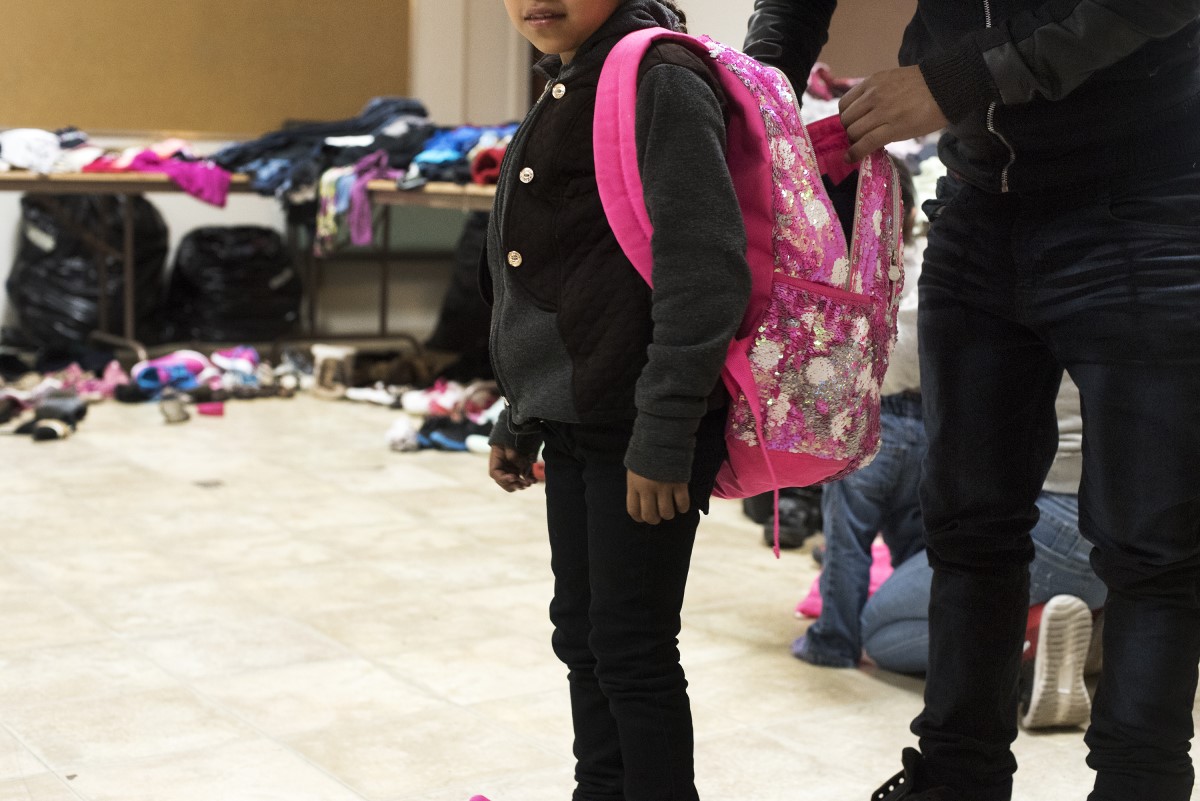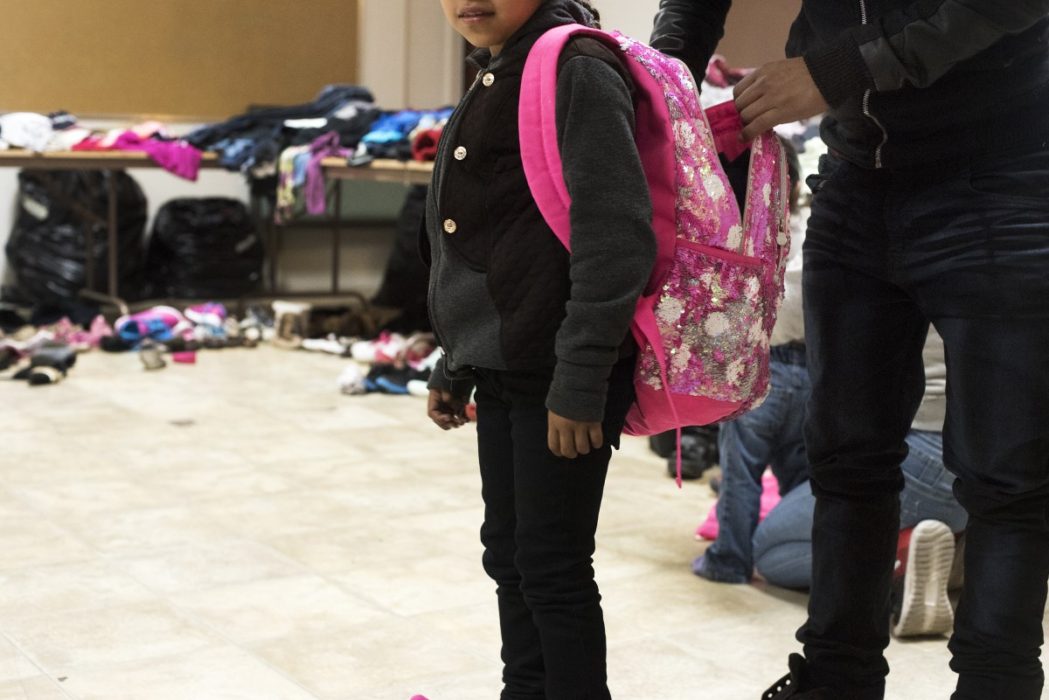
Last week, Gasper, a father of five from Guatemala, was taken into detention in Arizona after traversing Mexico with his 15-year-old daughter. They spent four days there before being released to a church in central Phoenix.
Gasper, who we’re identifying only by his first name to protect his identity, is one of hundreds of thousands of asylum-seekers, most from Central America, entering the country along the U.S.-Mexico border in recent years. In March alone, U.S. Customs and Border Protection reported 103,492 apprehensions along the southern border — by far the highest monthly total in the last five years.
For years, Immigration and Customs Enforcement has allowed migrants to await immigration hearings under the care of aid groups or with family members across the U.S. — a practice commonly called “catch and release.” But last October, ICE began responding to an influx of border apprehensions with an accelerated version of the policy that saw immigrant families released all at once, and by the hundreds. The sudden change has left organizations assisting migrants scrambling to find the resources to help.
On Monday, the back rooms of the Phoenix church where Gasper and his daughter ended up were transformed, as they have been each week since October, into a makeshift refuge for some 70 people fresh out of immigration detention. The space was abuzz with volunteers and tables full of donated supplies.
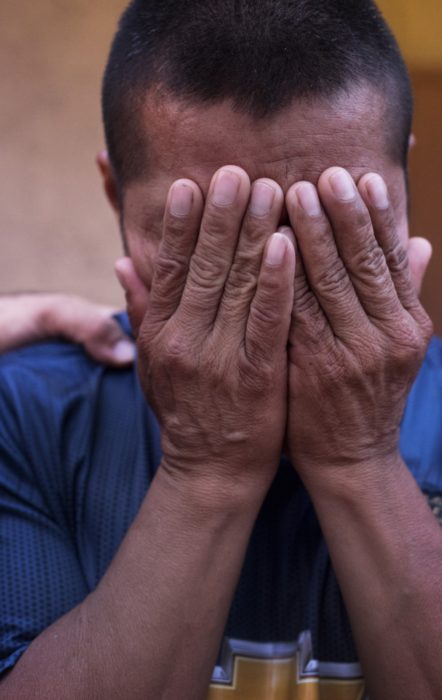
Recounting the violence they fled and the feverish trek to the Arizona border, Gasper began to cry.
“The journey here was very difficult, many of the things that happened are terrible to talk about,” he said. “I am worried for my daughter, I’m doing all of this for her.” He and his daughter were only in Arizona a few hours longer. Ahead of their asylum hearing later this month, they were due to board a cross-country bus to join his brother in another U.S. state.
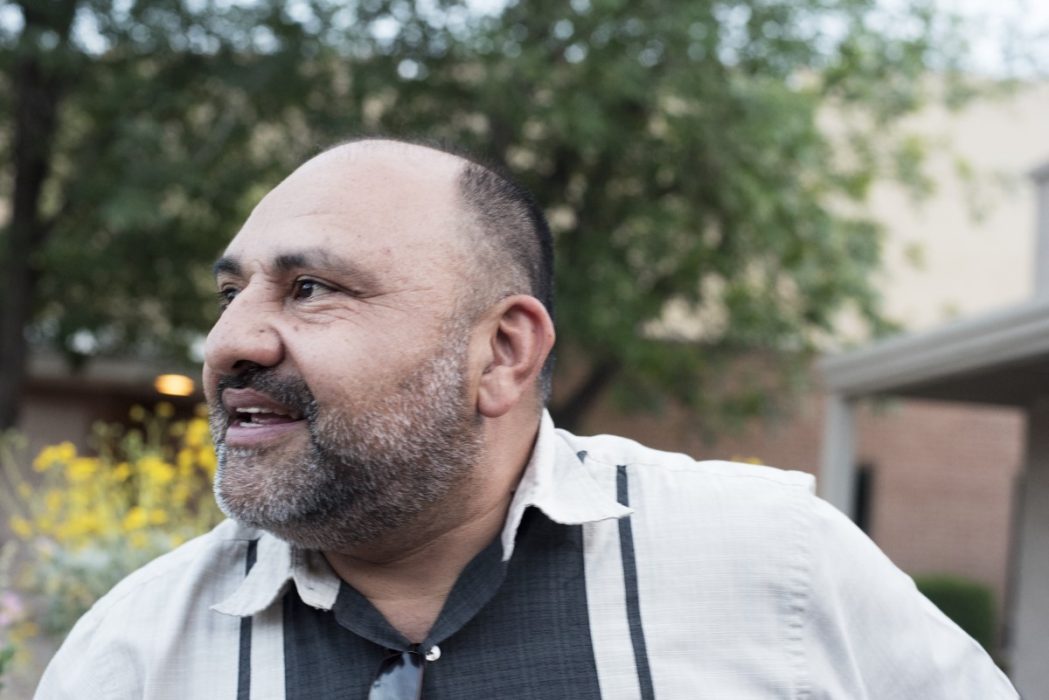
Pastor Angel R. Campos can pinpoint the exact day he decided to allow asylum-seekers to take refuge. “It was October 8, and I watched a news segment about what was happening at the border,” he said. “I saw this as an opportunity for our congregation to start doing something useful.”
Campos got in touch with Magdalena Schwartz, a pastor in Mesa whose organization, Alliance of Christian Leaders of the East Valley, had started working with local ICE officials to coordinate accommodations for migrants. By the time Campos called, Schwartz was desperately searching for fellow religious leaders willing to take part.
Campos asked we not name his church — aid networks are hesitant to reveal shelter locations after a series of protests from the far-right Patriot Movement group were staged outside the facilities in January. Protestors harassed migrant families and accused church volunteers of participating in human trafficking.
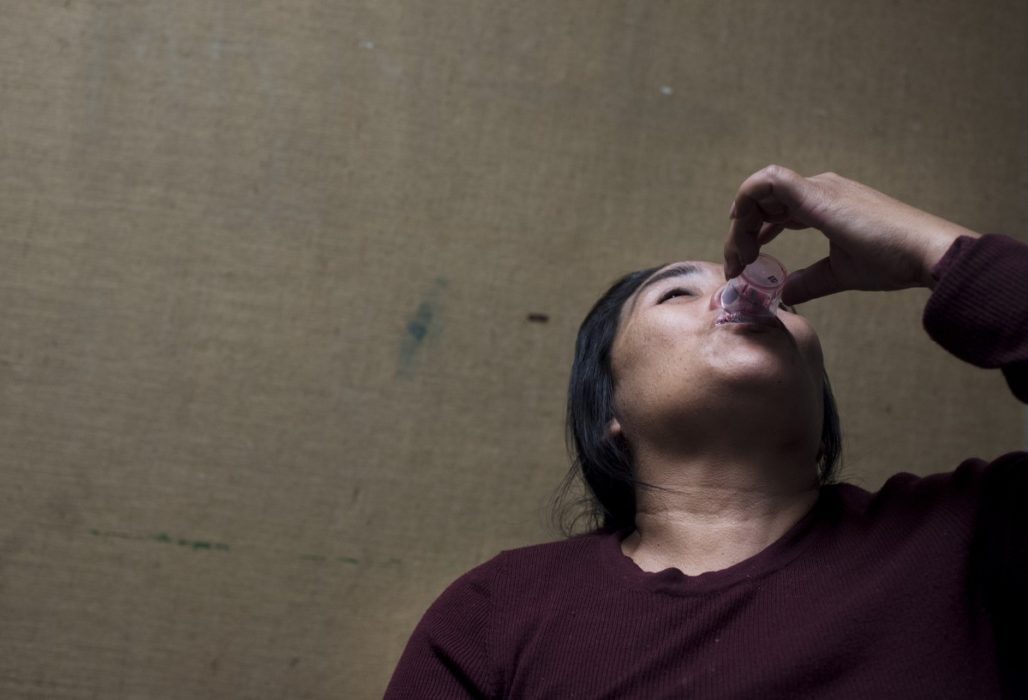
Many asylum-seekers need medical care. Long journeys to the border and detention stays often exacerbate skin conditions, respiratory problems, and seasonal illnesses. Campos’ church works with the nonprofit One Hundred Angels to provide onsite medical care. The group’s leader, Cecilia Garcia, a Uruguayan immigrant, began gathering medical supplies and volunteers to bolster shelters’ capacity last December. Volunteer medical professionals use donated over-the-counter medicine to care for some 100 people daily.
“The poverty many are fleeing is the result of losing their crops and livelihoods to drought; that’s not their fault,” Garcia said. “Helping is a matter of responsibility.”
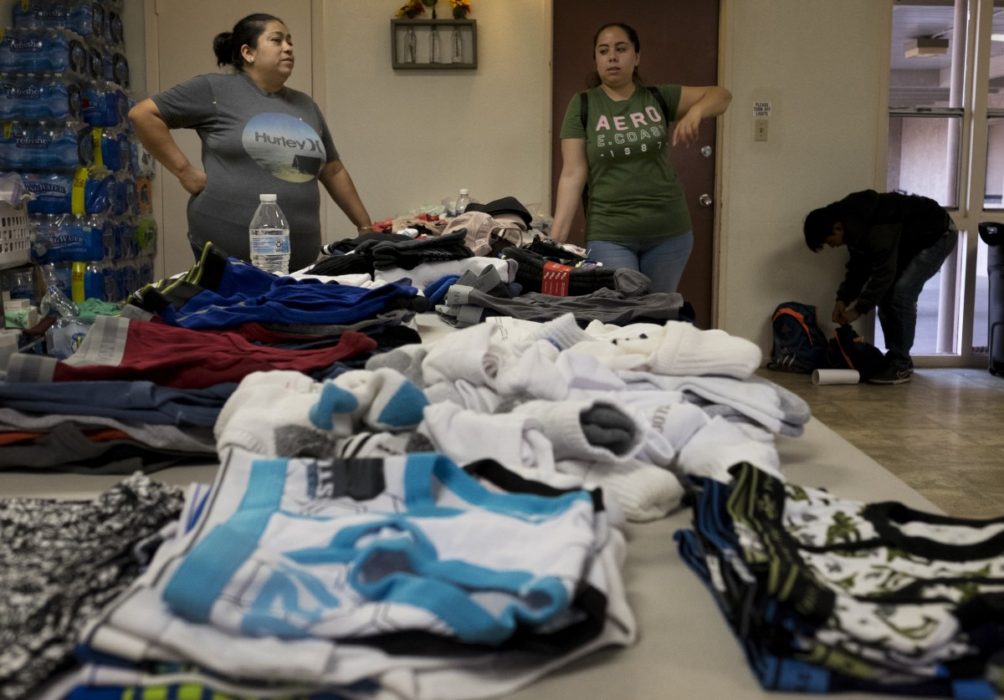
Volunteers Jacqueline Salazar and Elizabeth Olivares (left) helped hand out clothing to families. Arizona volunteers are dealing with a growing number of asylum-seekers and big questions about how to fund their stays. ICE leaves families without food, water, or travel plans outside Greyhound bus stations when shelters are at full capacity. The company recently barred individuals without a ticket from entering the station itself.
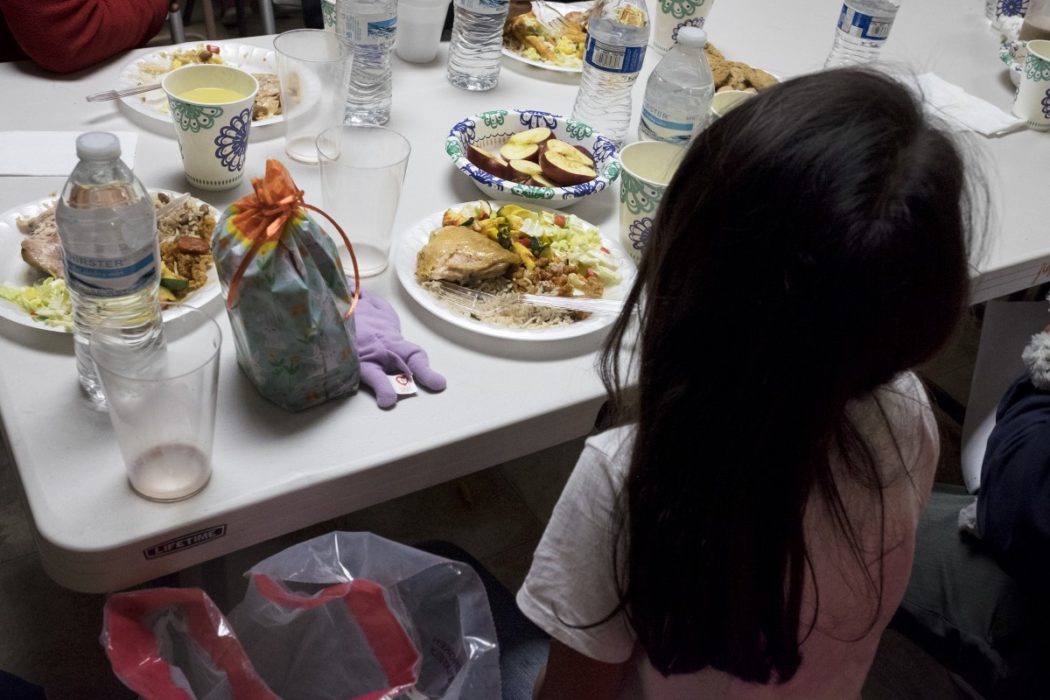
Families huddled around platefuls of food and transferred their sparse belongings from plastic Department of Homeland Security bags into donated backpacks. Today, Campos’ church is one of over a dozen shelters where hundreds of volunteers provide for families released in the Phoenix area. He says 6,000 people have come through his doors since operations began in October. Schwartz, leading the multi-church network, estimates she’s helped arrange the care of over 60,000 migrants.
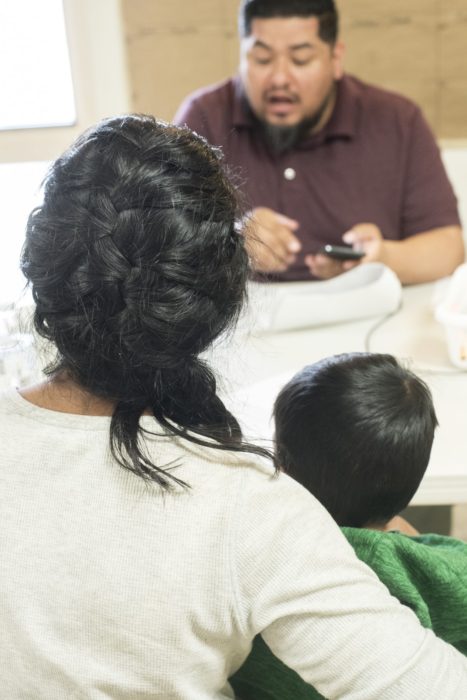
At a phone bank station, migrants tried to make travel arrangements by dialing family in cities across the U.S. — the first contact most are making since crossing from Mexico. For the majority here, Phoenix is a temporary stop on a longer journey. Migrants from a single busload were headed to waiting family members in Philadelphia, Wisconsin, and Tennessee.
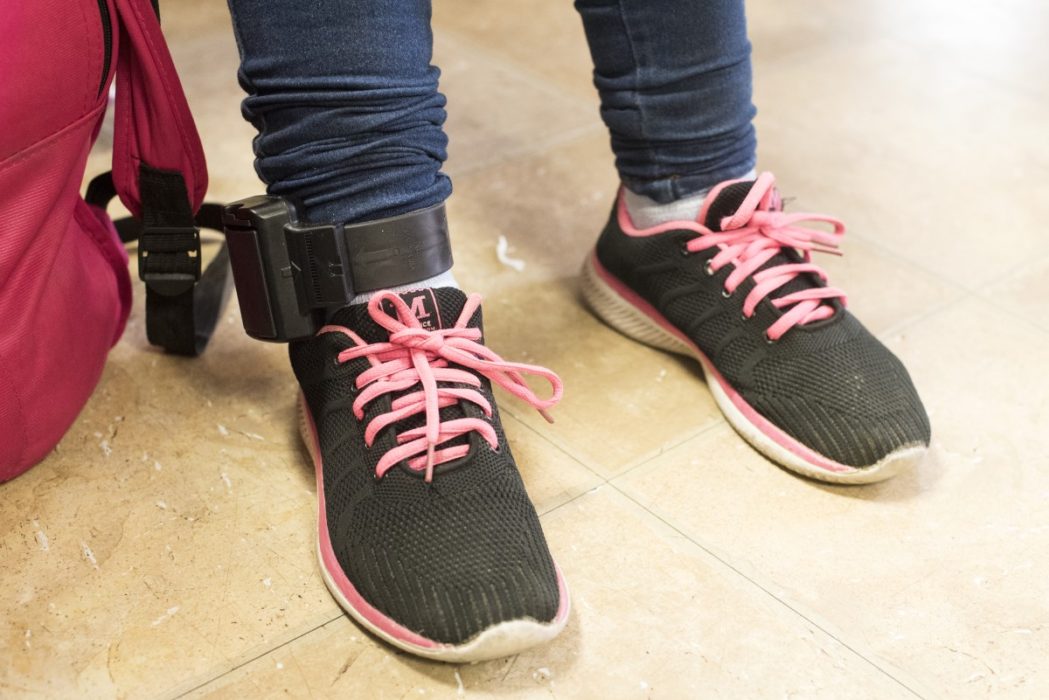
A young mother from Guatemala pulled on a pair of sneakers and readjusted the black plastic ankle monitor placed on her during detention. Other parents wear the same device.
Since late last year, the Trump administration has alternated between claiming asylum-seekers would be sent back to Mexico, released into designated U.S. sanctuary cities, or held indefinitely at the discretion of the Department of Homeland Security.
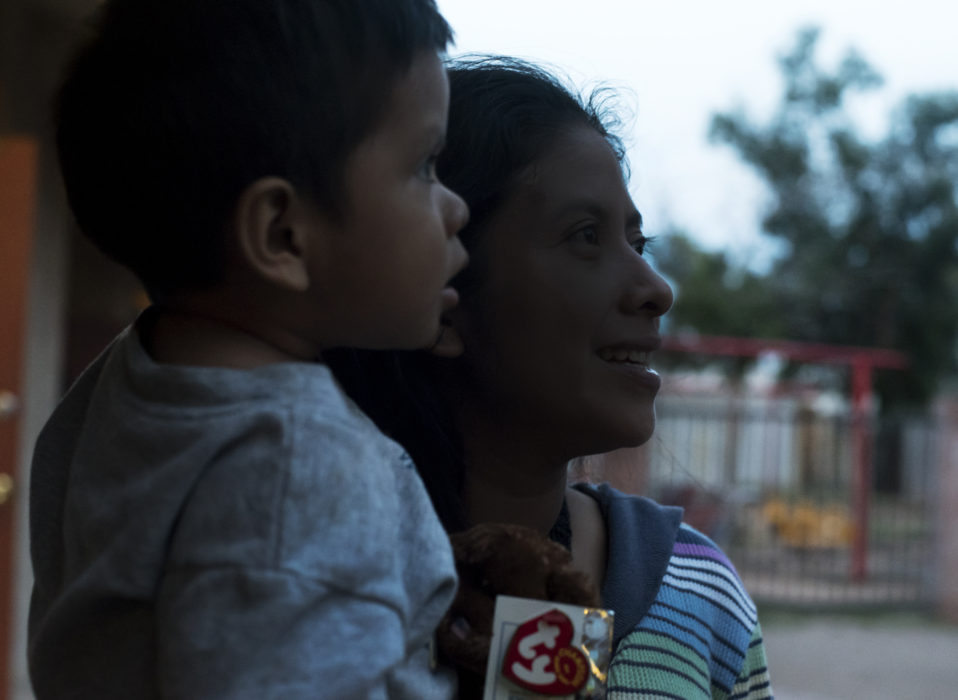
And in Phoenix, with every family that leaves, another takes its place. Campos says his volunteers drive groups to the airport or bus station for the next leg of their journey, only to return with new families from the station. “People sometimes have no idea the scale we are working with here,” he said. “But I am not alone in all this. Sometimes we have drivers coming at 2 in the morning to transport families, and we will be available until the last moment.”

